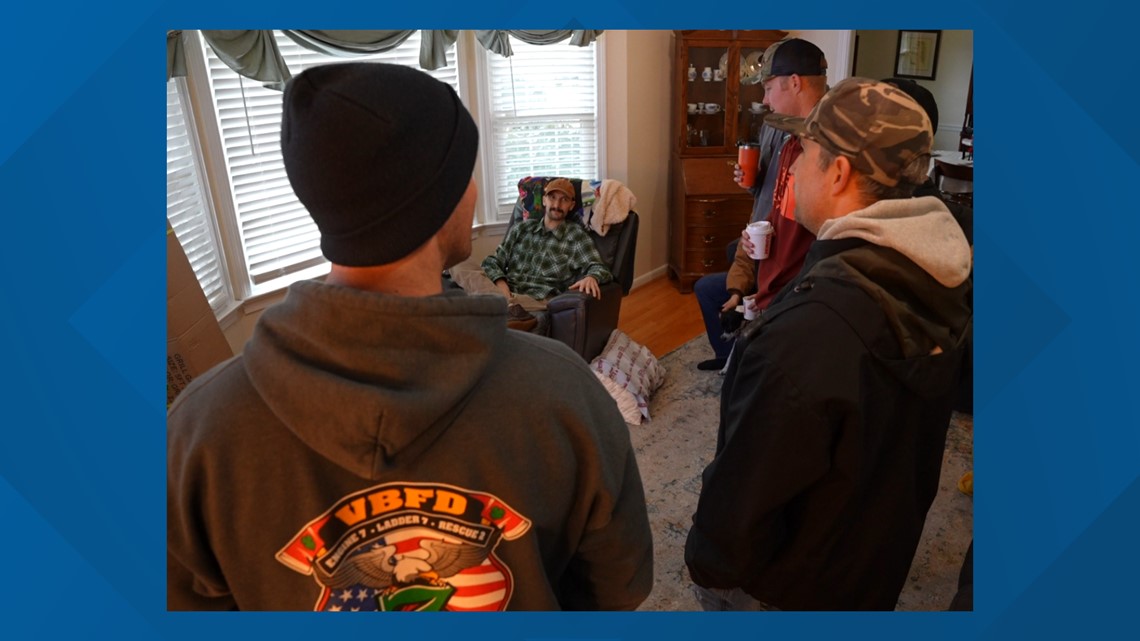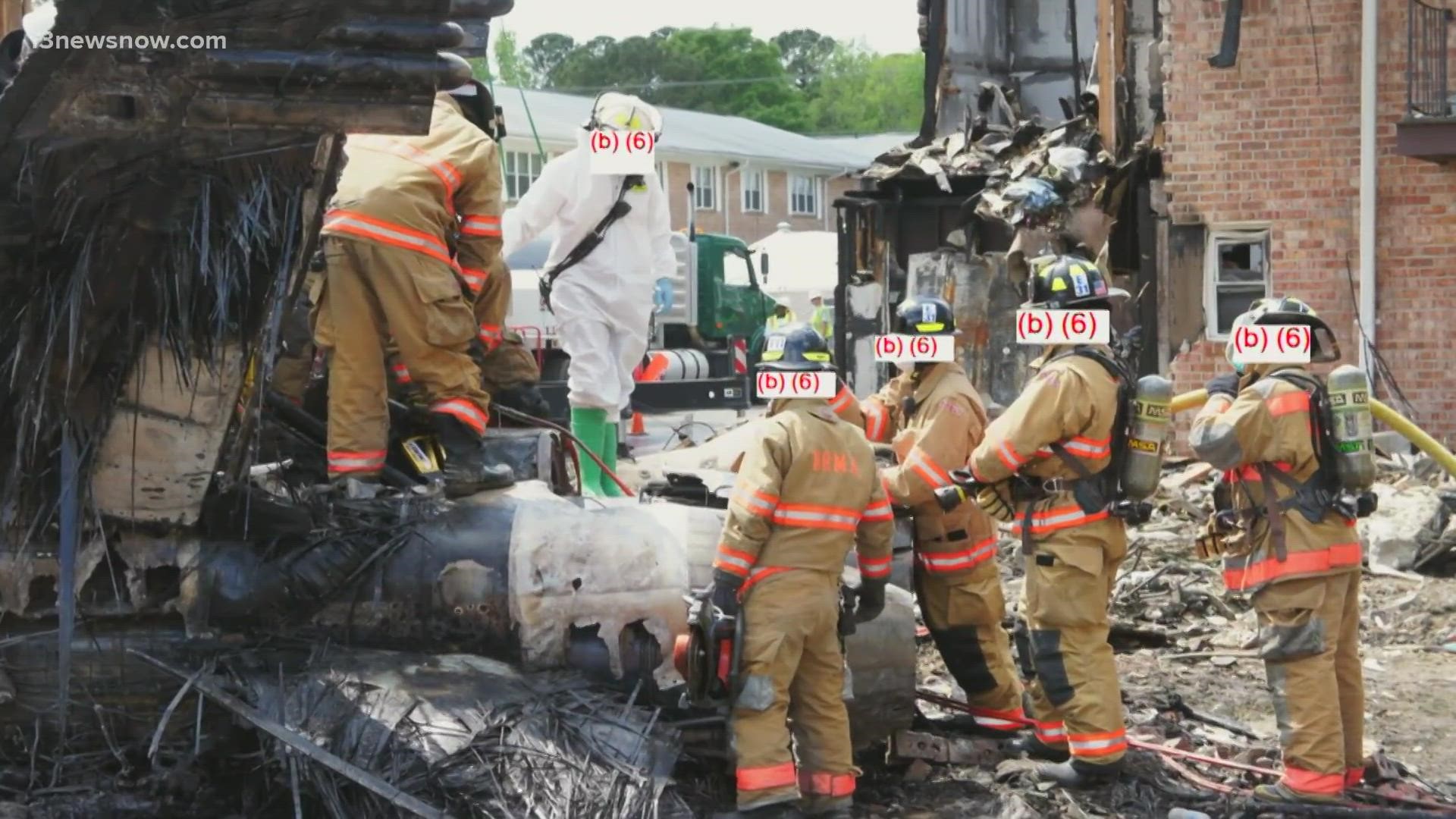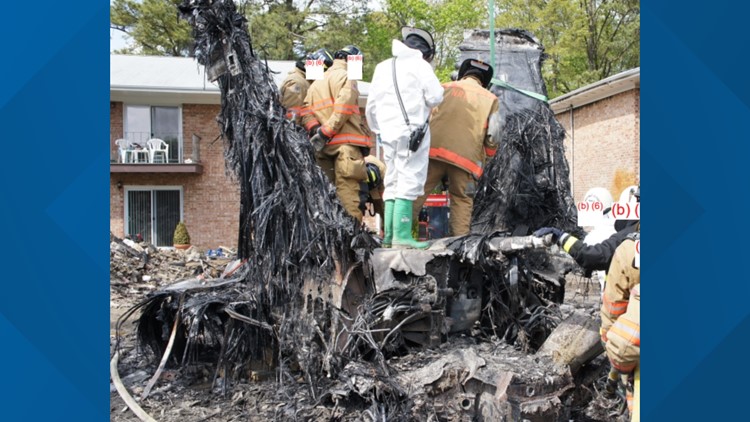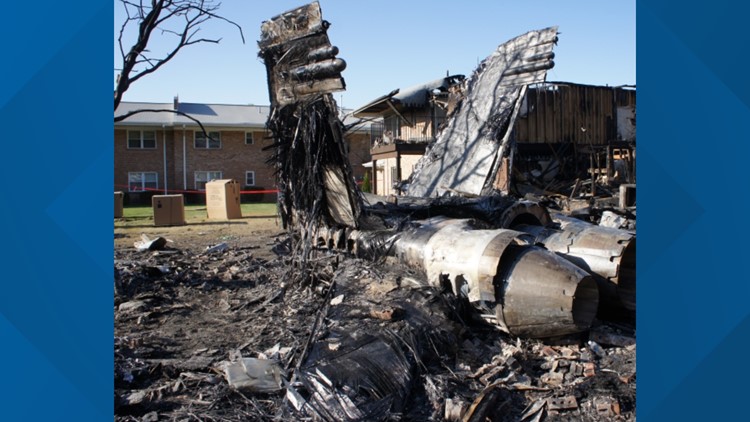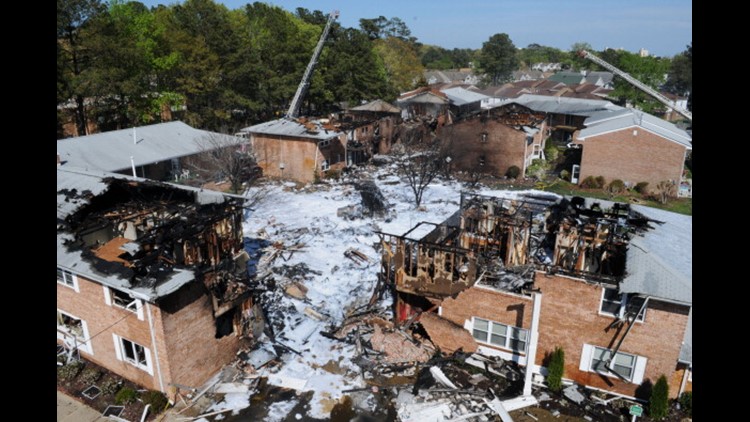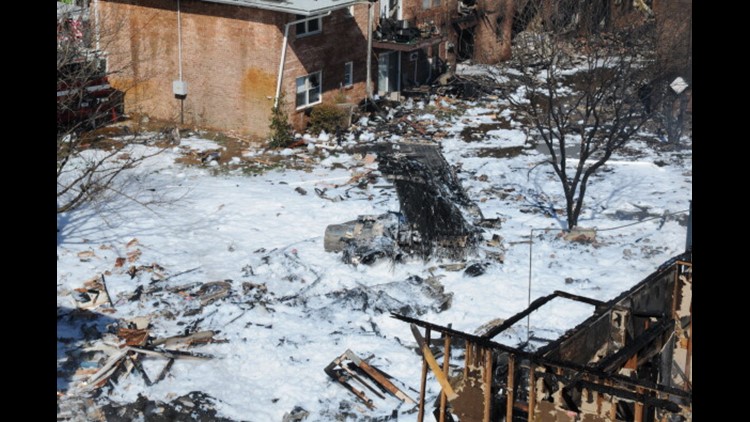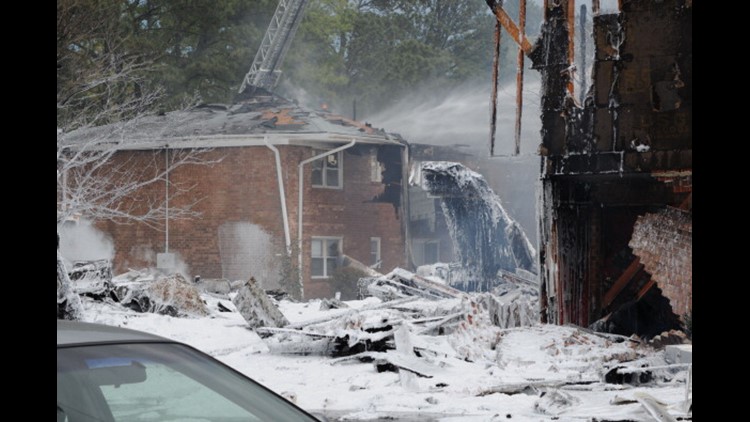VIRGINIA BEACH, Va. — At age 44, there are days when Virginia Beach Fire Captain Matt Chiaverotti doesn't have the energy to pick himself up from his recliner that sits by his living room window.
Cancer is making him weak.
On Aug. 23 of last year, he got a grim diagnosis: late-stage anaplastic thyroid cancer, a rare disease making up 1% to 2% of thyroid cancer cases.
"It started in my thyroid [and] looked like it spread to my lungs and other spots," Chiaverotti said. "They ended up finding it days later in my brain."
He is not alone. Four other Virginia Beach firefighters are currently battling or recently battled cancer.
All five worked what has been dubbed the “Good Friday Miracle,” a Navy FA-18 jet crash nearly 11 years ago into the Mayfair Mews Apartments on Good Friday 2012. It’s called a miracle because no one perished in the fiery collision that demolished the complex.

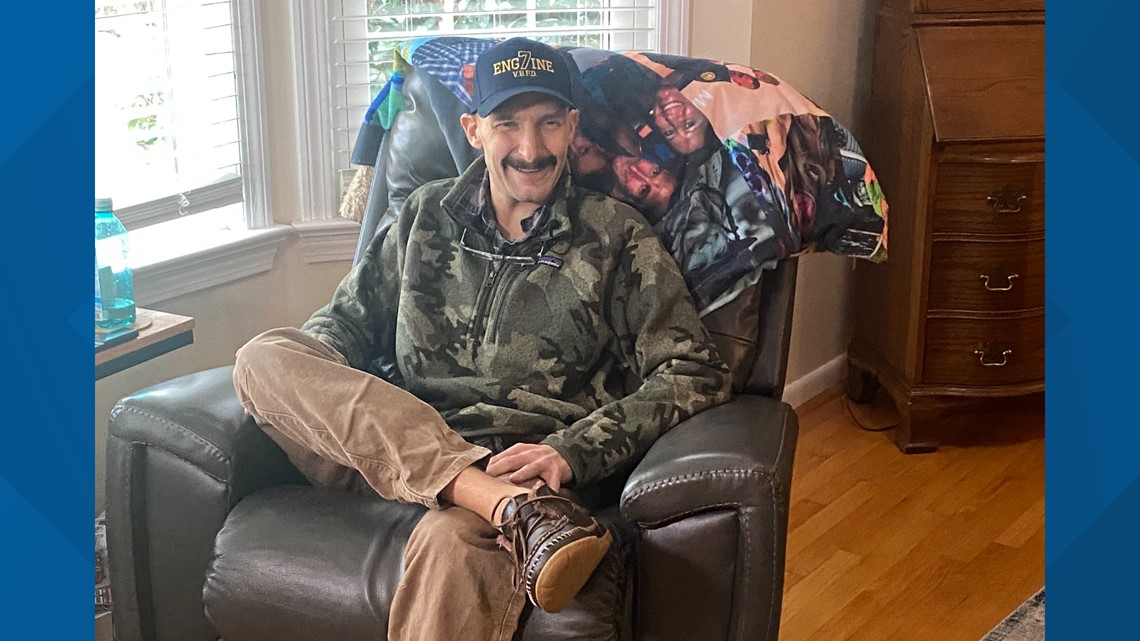
"There is a handful of us who have developed some type of cancer and we’ve all been to the jet crash and that’s pretty eye-opening,” said Captain Chris Isdell, who was also diagnosed with non-invasive follicular thyroid cancer in September.
He's only 31 years old and was a recruit at the time of the jet crash.
Fortunately, surgery successfully removed the cancer.
"It was taken care of with just surgery, didn't have to do any kind of treatment, it's just going to be constant monitoring and scans," he said.
While no one can say for sure that the jet crash is the culprit behind the cancer diagnoses, the toxic brew that filled the air and littered the ground that day was extremely hazardous.
“When things burn, it’s a whole different game," Virginia Beach Fire Chief Kenneth Pravetz said. "You know, the chemicals were there when it started, but when things burn, the carcinogen effects of the chemicals and the burning and the meltdown, it creates complex new chemicals that you really don’t understand."

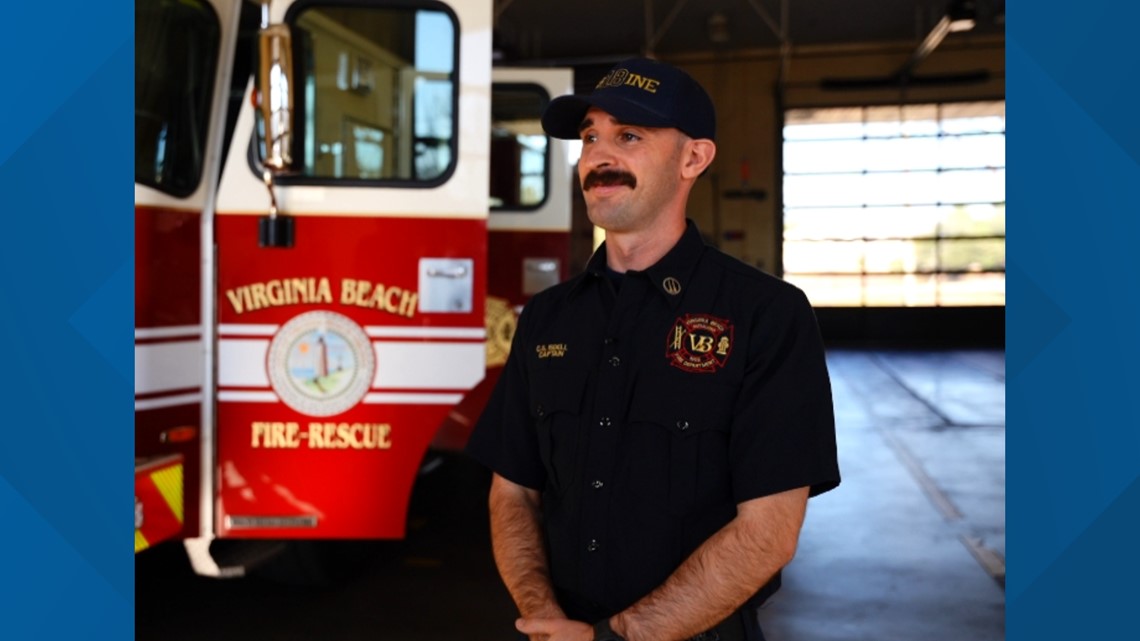
Virginia Beach Professional Fire and EMS president, Max Gonano, has become the department's ready reference on the jet crash and the hazardous agents it produced, corresponding with the military, scientists and the Department of Defense.
He's helping to lead the fight to expand the list of presumptive cancers for firefighters to ensure the qualification of worker's compensation benefits when a diagnosis occurs.
“The Virginia Professional Firefighters, which is our state affiliate, has designated naming thyroid cancer, melanoma, bladder and non-Hodgkin's lymphoma to the named cancers for presumptive benefits for firefighters,” Gonano said. “We have a lot of friends in Richmond and we’re hoping that we can get this legislation accomplished but we’re not going to stop until we do.”
Presently, the list includes leukemia, pancreatic, prostate, rectal, throat, ovarian, breast, colon, brain or testicular cancer. And there is promising news.
State Sen. Bill DeSteph, whose district covers a portion of Virginia Beach, has vowed his support behind expanding the list of presumptive cancers.
“It’s directly related to their line of duty, and it should be covered," he told 13News Now.
A bill that expands the workers' compensation presumption of compensability for bladder and thyroid cancers is making its way through the General Assembly, having already passed the Senate unanimously.
However, the presumption for these cancers does not apply to any individual diagnosed with such a condition before July 1, 2023. A firefighter would have to have completed at least five years of service.
Navy Jet Crash Aftermath
According to Gonano, files from the Navy Safety Command identify six hazardous agents that were present at the jet crash, including hexavalent chromium, the contaminant featured in the 2000 movie, "Erin Brockovich."
Other hazards include but weren't limited to Americum-241, Xylene, Triphenyl phosphate, jet fuel and cadmium.
Chiaverotti said the department has been spearheading safety improvements in the years since the crash, “We’ve gotten second sets of turn-out gear. The hoods we wear now actually have a barrier in them now to protect our necks.”
The focus now, according to Pravetz, is to increase screenings for cancer and for levels of poly-fluoroalkyl (pfas) among the firefighters. Pfas foam was used to help fight the fire and has been linked to cancer.

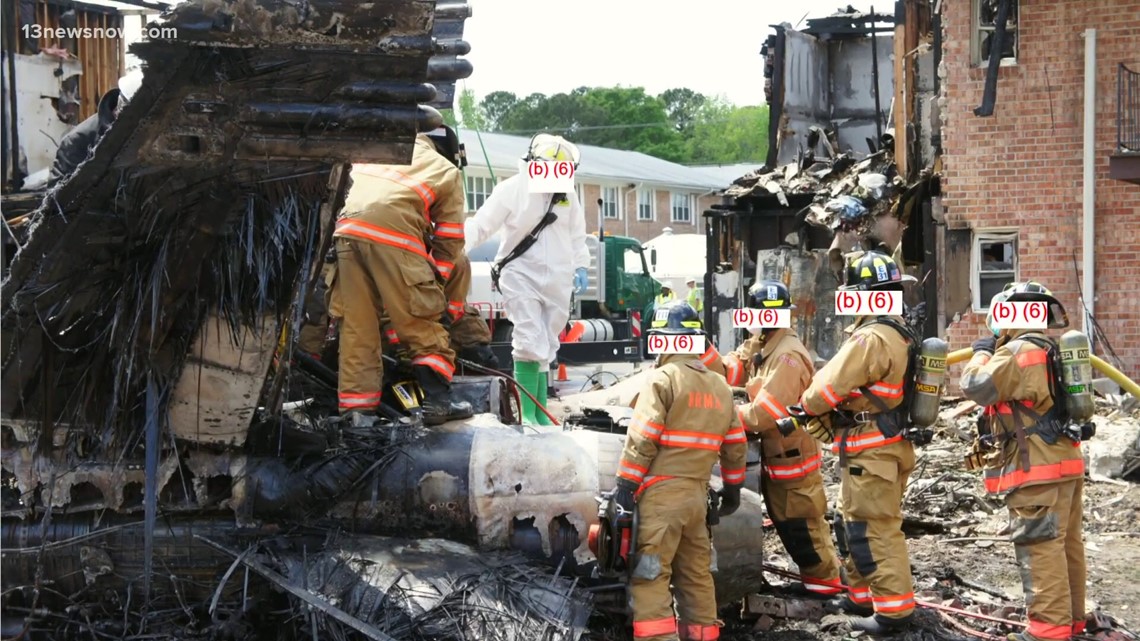
“The industry as a whole has moved away from the foam," Pravetz said. "Those chemicals are called forever chemicals, once they get into your body, your body doesn’t break them down."
The firefighters fight for each other harder than they have ever battled a flame. The brotherhood is rallying around Chiaverotti, affectionately called "Chevy." His cancer treatment has left him weak and speaking with a whisper.
On a chilly January morning, fellow firefighters gathered at Chiaverotti's home to dismantle the Christmas lights, rake the yard and clear out the gutters.
Chiaverotti, his wife and 11-year-old son are grateful. Looking back on his 20 years in the fire department, there are no regrets, even about that day nearly 11 years ago.
"To be honest with you, if I went back there today, I'd do the exact same thing, 'cause that's what we do."

